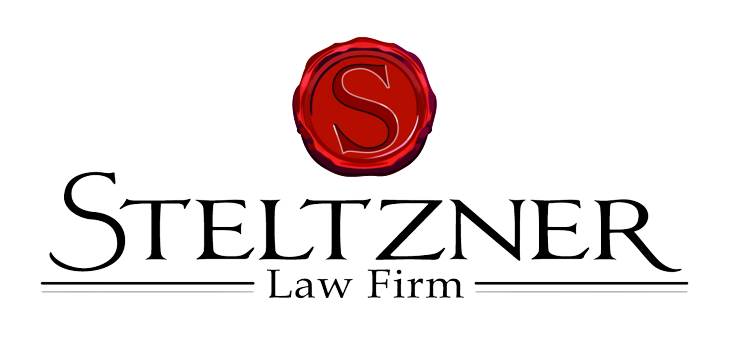The Path to Successful Business Formation in North & South Carolina
The business landscape in North and South Carolina offers vast opportunities for growth and success to entrepreneurs, investors, and established business owners. However, the road to establishing a new venture is not always straightforward, and understanding the legal intricacies during business formation is crucial. These can include selecting the appropriate business structure, obtaining necessary licenses and permits, drafting organizational documents, and ensuring regulatory compliance.
At Steltzner Law Firm, LLC, our team of experienced attorneys and staff have a combined three decades of law firm experience and transactional legal services expertise. Our commitment to providing in-depth understanding and cost-effective solutions to your legal problems ensures that we are well-versed in the nuances of business formation throughout North and South Carolina. Whether you are an individual with a fresh business idea, an existing partnership seeking expansion, or an established corporation testing new markets, we are here to guide you through the business formation process.
In this blog, we aim to provide educational, informative, and valuable insights into the many aspects of business formation within North and South Carolina. The content will delve into the selection and formation of various legal entities such as Limited Liability Companies (LLCs), corporations, and partnerships, while exploring the legal documentation, taxation issues, and ongoing compliance requirements of each.
Steltzner Law Firm, LLC is your reliable partner for navigating the complex world of business formation in both North and South Carolina. Our dedicated team of attorneys is ready to provide the guidance and support necessary for a successful and seamless start to your entrepreneurial journey. Contact us today to schedule a consultation and discuss your business formation needs.
Selecting the Right Business Entity: Establishing a Solid Foundation
One of the first and most significant decisions an entrepreneur must make during business formation is choosing the appropriate legal entity. Selecting the right entity type is crucial for liability protection, taxation, and ease of management. The most common business structures in North and South Carolina include:
- Sole proprietorship: Ideal for a single owner-operator, this entity type offers simplicity and minimal requirements for formation. However, the owner assumes personal responsibility for all business liabilities and debts.
- Partnership: Suitable for two or more individuals who agree to manage and operate a business together. Partnerships can either be general or limited and should have a partnership agreement outlining each partner’s responsibilities, profit-sharing, and other essential terms.
- Limited Liability Company (LLC): An increasingly popular choice for small businesses, as it combines limited liability protection with pass-through taxation of profits. It requires submitting Articles of Organization and obtaining an EIN from the IRS.
- Corporation: A more complex business structure that offers limited liability protection to shareholders but requires more stringent compliance with state and federal regulations. Corporations may be C or S corporations, differentiated by the taxation method and shareholder limitations.
Consulting with experienced attorneys can help you determine which business entity best aligns with your goals, risk tolerance, and operational requirements.
Acquiring Licenses and Permits: Adhering to State and Local Regulations
Depending on your business’s nature and location, you may need to request and obtain specific licenses and permits to operate. These requirements can vary across federal, state, and local levels. Common licenses and permits include:
- Business License: A general operating license issued at the city or county level, typically required for all businesses.
- Professional License: Required for certain regulated industries, such as medical practitioners, attorneys, architects, and engineers.
- Sales Tax Permit: A permit to collect and submit state sales taxes, often necessary for retail and wholesale businesses.
- Health Department Permits: Essential for foodservice establishments and businesses operating in the health sector.
Working with knowledgeable attorneys can help you navigate the complexities of securing required licenses and permits, ensuring your business can operate legally and remain compliant with all relevant regulations.
Creating Essential Legal Documentation: Protecting Your Interests
While it’s crucial to focus on the growth and development of your new enterprise, it’s equally important to draft and maintain the proper legal documentation to protect your interests. Key legal documents include:
- Operating or Partnership Agreement: An essential document for LLCs or partnerships, where it outlines the company’s management structure, member or partner responsibilities, and ownership interests.
- Employee Agreements: Agreements between the business and its employees, such as contracts, policies, confidentiality, or non-compete clauses, expressly defining the rights and responsibilities of both parties.
- Vendor and Customer Contracts: Written agreements with your vendors or customers can help clarify obligations, payment terms, and avoid potential disputes during the course of your business relationships.
Collaborating with attorneys experienced in business formation can ensure you establish valuable legal documentation that aligns with your objectives and protects your business interests.
Ongoing Compliance and Record-Keeping: Maintaining Legal and Financial Health
Post-formation, your business is subject to ongoing regulatory compliance, periodic filings, and proper record-keeping. These responsibilities can include:
- Annual Reports: Required filings for corporations and LLCs disclosing current company information to the state.
- Record-Keeping: Maintaining minutes, resolutions, and other corporate records to ensure legal compliance and readiness for business audits.
- Tax Compliance: Adhering to federal, state, and local tax obligations, including income, sales, payroll tax filings, and timely payment submissions.
Partnering with a trusted law firm can help you navigate the complexities of ongoing compliance, safeguarding your business’s legal and financial well-being.
Conclusion
Embarking on the path to successful business formation in North and South Carolina requires an extensive understanding of your chosen business structure, accurate documentation, regulatory compliance, and efficient management. Steltzner Law Firm, LLC is committed to guiding and supporting entrepreneurs in their pursuit of a successful business venture.
Our team of knowledgeable attorneys is ready to assist you throughout the business formation process, ensuring you receive invaluable insights and legal counsel, tailored to your unique requirements. Contact us today to schedule a consultation and begin your exciting entrepreneurial journey with the expert licensed lawyers of Steltzner Law Firm, LLC.
